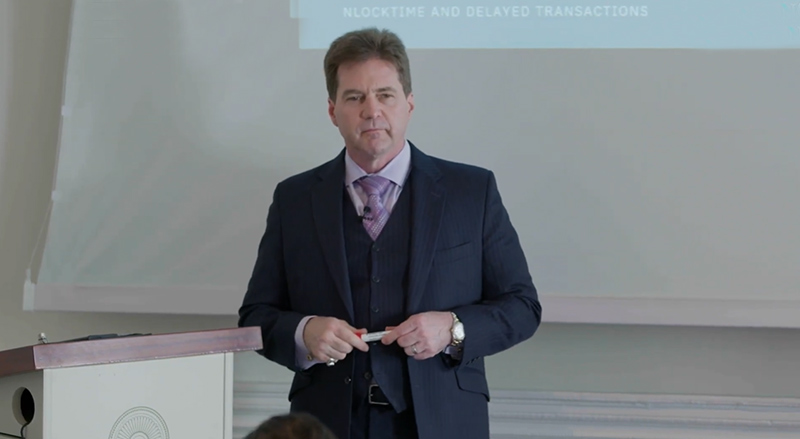The Bitcoin Masterclass (London) Day 1
Dr Craig S. Wright, Chief Scientist at nChain, held another edition of his Bitcoin Masterclass series at an exclusive venue in London in April. The Masterclass course forms part of a monthly series aimed at helping attendees understand the fundamentals of Bitcoin and the technology behind it.
The Bitcoin Masterclass series will give you a comprehensive overview of Bitcoin’s history, theory and design. Wright discussed the future of Bitcoin and the unbounded scalability of nChain’s blockchain solutions, with potential use cases across several industries.
In the final session on day one, attendees were asked to split up and brainstorm how nLockTime transactions and Bitcoin contracts could be used in real-world use cases.
nLockTime is a feature in the Bitcoin protocol. A field can be included in a Bitcoin transaction to specify the earliest time (block height or timestamp) at which the transaction can be added to a block and confirmed by miners.
When creating a Bitcoin transaction, the sender can set the nLockTime field to a specific block height or a Unix timestamp. If the nLockTime value is set to a future block height or timestamp, the transaction will only be considered valid once that time is reached. This feature allows for the creation of time-locked transactions.
Time-locked contracts
One of the obvious ways that nLockTime transactions can be used in businesses is by creating time-locked contracts. In certain contractual agreements, funds could be locked until specific conditions or periods are met, and nLockTime transactions might be employed to facilitate these arrangements.
Similarly, nLockTime transactions can be used for pre-scheduled payments. Specifically, businesses could use nLockTime transactions for subscription-based services to pre-schedule recurring payments, ensuring timely payments from customers.
The most obvious use case is for escrow services where funds are held in a multi-signature address, and the release of funds is time-dependent.
In this workshop, the attendees also discussed how nLockTime transactions can be used in specific business segments, including:
- Estate management;
- Building construction;
- Interest payments;
- Fractional ownership;
- Cargo shipping
- Commercial property management;
- Insurance.
